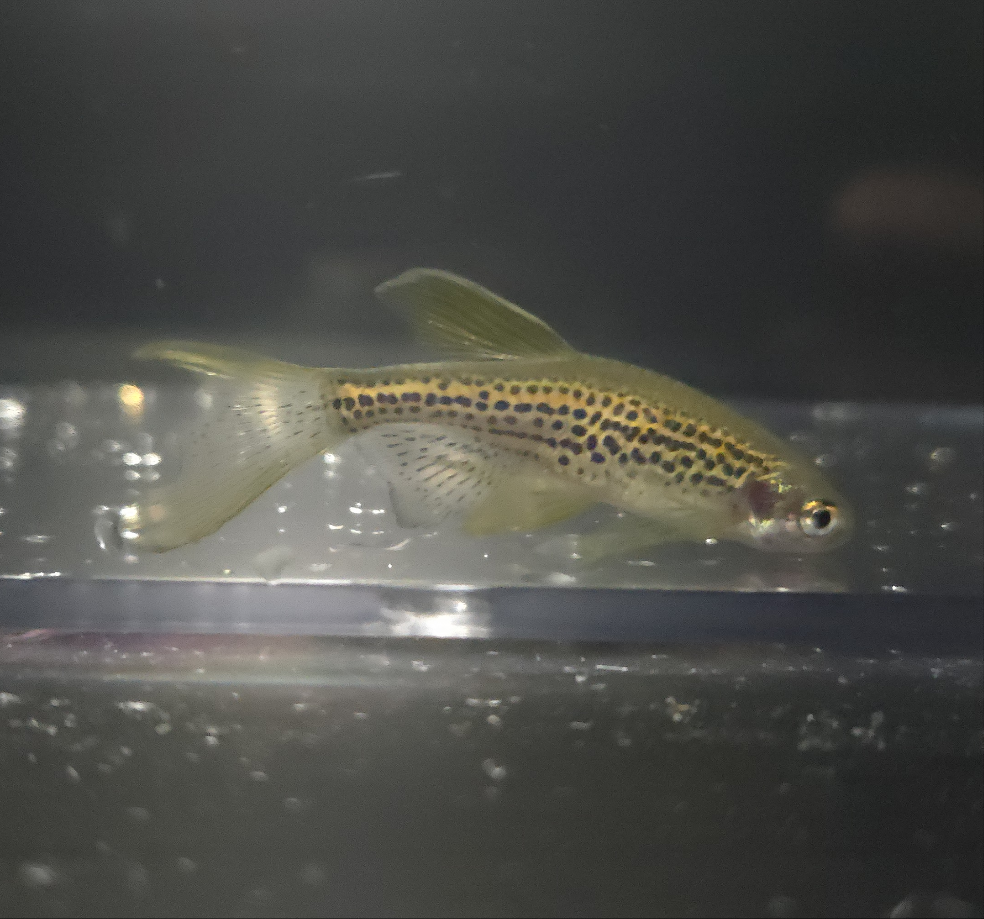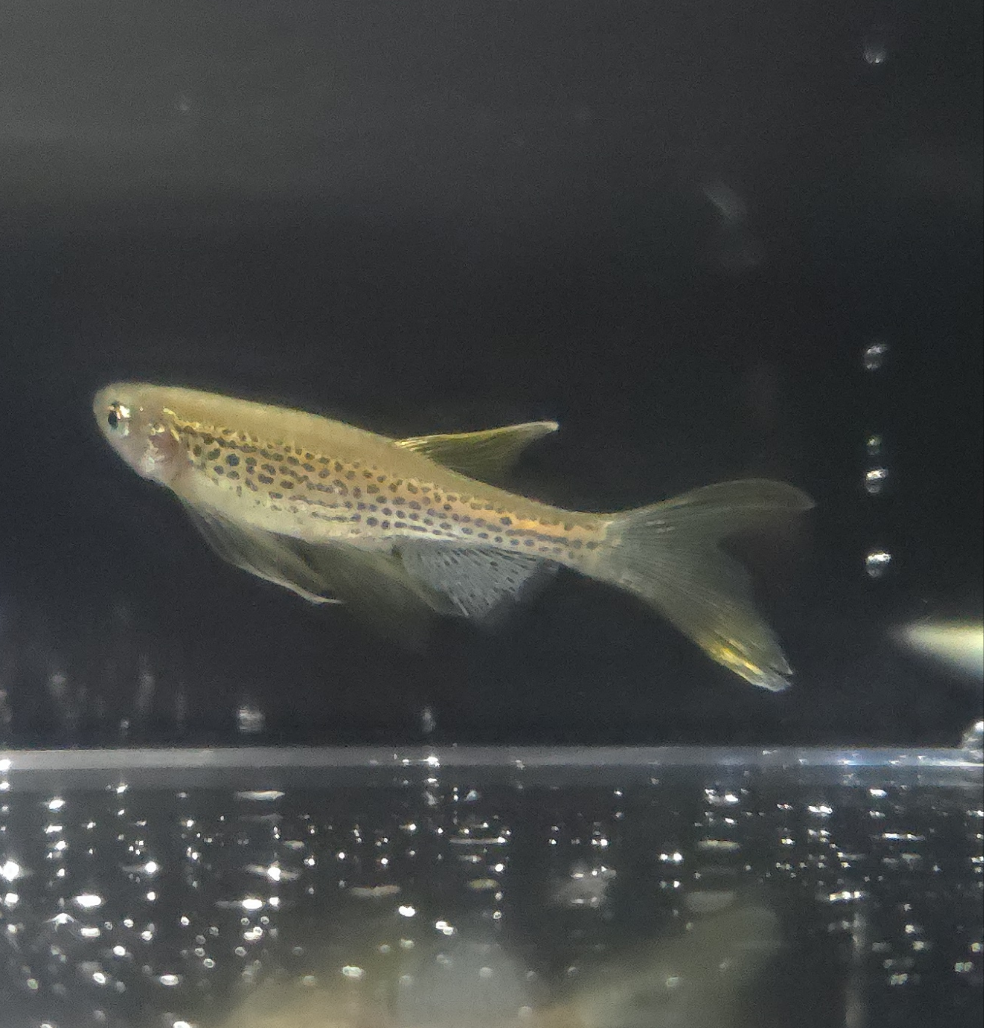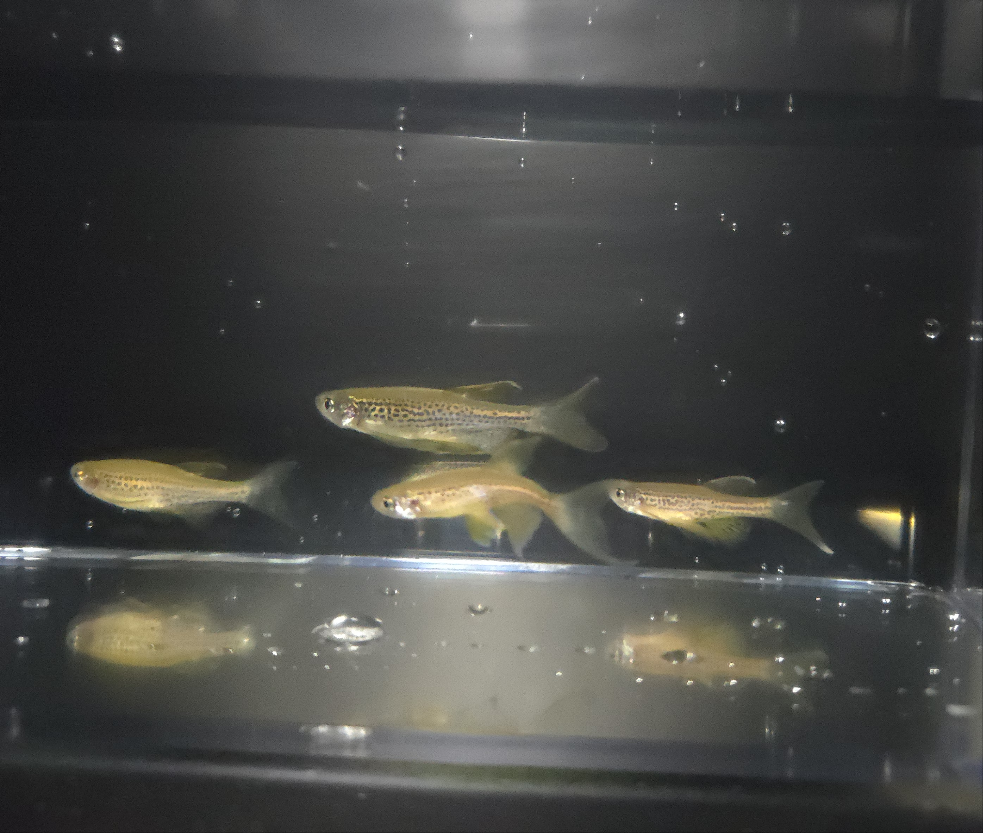Fancy Fish and Aquascapes
Leopard Longfin Danio ~ Danio rerio
Leopard Longfin Danio ~ Danio rerio
Couldn't load pickup availability
The Leopard Longfin Danio is a stunning and hardy variant of the Zebra Danio, easily recognizable by its long, flowing fins and leopard-like spots that adorn its body. This species is an active, schooling fish that is ideal for community aquariums. Native to the streams and rivers of South Asia, it thrives in a wide range of water conditions, making it perfect for both beginners and experienced aquarists.
- Size: 2-2.5 inches
- Lifespan: 3-5 years
- Temperament: Peaceful, energetic
- Group/Solitary: Best kept in groups of 6+
- Food: Omnivorous, flake food, small live/frozen foods (bloodworms, daphnia)
- Water Requirements: 64-75°F, pH 6.5-7.5, soft to moderately hard water
Leopard Longfin Danios are best kept in schools of at least six or more, as they are social fish that display their best behavior and coloration in groups. These fish are active swimmers and need plenty of open space in the aquarium, so it’s important to provide a tank with sufficient room for them to dart around. Though peaceful, their constant activity can be stressful for slower or shy tankmates, so they are best kept with other similarly energetic fish. They thrive on a diet of high-quality flake food, supplemented with small live or frozen foods like bloodworms and daphnia. As with most Danios, they are very hardy and can tolerate a range of water conditions, but regular water changes and a stable environment will keep them in optimal health.
In the wild, Danios are found in slow-moving rivers and streams in India, Bhutan, and Nepal. They are accustomed to cooler temperatures and are highly adaptable to various water conditions, making them versatile aquarium fish. Their long fins add an extra element of beauty to the standard Danio look, but also make them slightly more vulnerable to fin-nipping, so it's important to choose compatible tankmates.
Fun Fact: Leopard Longfin Danios are one of the few fish species that have been genetically studied and used in scientific research, particularly in the fields of genetics and developmental biology due to their quick reproduction and transparent eggs, which allow scientists to study growth in real-time.
Share






